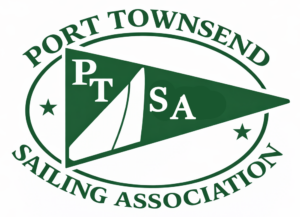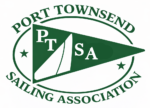Chris Wilke, Puget Soundkeeper and Executive Director, Puget Soundkeeper Alliance sent in this response to the earlier PT Moorage Tenants Union (MTU) post. Stay tuned for a response from the MTU. Posting of Comments and entries in the Forum are encouraged. Let your voice be heard. Having a problem registering to post? Jak did some work to straighten out that function, try it again and the “Forgot my password” function is working.
I read your recent story on copper bottom paint [on the PTSA website] which was a reprint of the recent Marina Tenants Union (MTU) position paper. I have already provided MTU with comments on the paper on behalf of Puget Soundkeeper Alliance (Soundkeeper), and I had a long discussion with MTU members on this issue. I am concerned however that the tone of the article is very adversarial and one-sided, and paints recreational boaters as a victim in what is actually a multi-lateral effort to better control a significant toxic pollutant (copper).
Copper has been scientifically shown to disrupt and/or kill aquatic life (especially salmon) even in extremely low concentrations- down to levels as low a 2 parts per billion (ppb). There can also be a lot of copper in bottom paint- some paints are up to 75% copper. The copper in the paint readily leaches into the water, and if disturbed by cleaning or pressure washing, can create a dense plume in the water, which is why in-water bottom cleaning of most paint formulations is illegal in Washington state. Although Soundkeeper has clarified its position with MTU and plans to partner with them to broaden and improve the legislation, we feel a need to address some of the assertions in the article as it has now been shared with a broader audience.
1. Although Soundkeeper has submitted extensive comments to improve the proposed legislation, readers should know Soundkeeper is not an author of the legislation and does not have any access to approval of the draft versions submitted to legislative committees. Readers should also know that web-searchable drafts do not always reflect the current negotiations and agreements. Our best advice is to call the primary parties (especially the Northwest Marine Trade Association-NMTA) with your concerns. There is still time to affect the outcome, but we hope that you will join us in the spirit of reducing this harmful pollution source, as MTU has stated they support.
2. Soundkeeper’s Clean Water Act legal actions are being drug into this debate and are not relevant to the legislation. To clarify, Soundkeeper filed five citizen actions (60 day notices of intent to sue under the Clean Water Act) in response to repeated illegal pollution violations from five Seattle Boatyards in late 2009, which included high levels of copper, zinc, lead, suspended solids, and/or oil & grease. Some of the discharges of copper were hundreds of times above water quality standards. All five cases have been settled and significant compliance measures are in progress at all locations.
3. Soundkeeper strives to be a friend to the boating community. Soundkeeper enthusiastically supports voluntary and compliance-based pollution prevention efforts in the marine industry and boating community. Soundkeeper authors and distributes a Puget Sound Boater’s Guide, and a Do-It-Yourself Manual for Boat Repair and the Environment, the latter used as tutorial at many area boatyards. Soundkeeper has assisted in jointly funding boat sewage pumpouts and is the lead organization in the Washington Clean Marina program which has certified 56 marinas around the state, including two marinas operated by the Port of Port Townsend. Soundkeeper also recognizes that some boatyards are working hard to protect water quality and commends the efforts of certain yards in effectively controlling their stormwater pollution through best management practices, adaptive management and implementation of enhanced stormwater treatment systems.
4. Soundkeeper has no intention of “singling out” operators of small recreational boats. To clarify its position: Soundkeeper fully supports extending this phase-out and eventual ban of copper bottom paint to include ALL recreational vessels, including those over 65 feet. Soundkeeper has already requested that the definition of ‘recreational boat’ used in this legislation be consistent with the federal Clean Boating Act of 2008, which has no size limit. Soundkeeper believes this has a very good chance of entering the current legislation. In addition, Soundkeeper and MTU have agreed to jointly push for extending the phase-out and ban to include all commercial vessels under 79 feet, which is a length that also has implications in the regulation of commercial vessels at the federal level. In addition, Soundkeeper would enthusiastically support a future effort to ban copper bottom paint from ALL commercial and government vessels regardless of size, but has not yet studied this industry in detail. We have to start somewhere.
5. Contrary to numerous assertions, alternatives to copper do exist and they are available and viable. The proposed legislation will include a significant phase-out/ phase-in period (likely to be 8 years or 2-4 haul-out cycles), which will give additional time for more ground-truthing data and development of new technologies. Readers should note: The major paint manufacturers all have alternative coatings on the market now. Some boatyards in the state have ALREADY gone copper free. The Practical Sailor article quoted as saying the technology was not quite ready actually states that the alternative coatings worked quite well, but for approximately 25% less time between reapplications. This study was based on the paints available almost 3 years ago. Significant improvements have been made since then, some paints undergoing multiple new generations since the study began. The proposed phase-out period will give ample time for even the most skeptical boat owner to see more data before deciding on a formulation best for them. One final request for concerned boaters: Please do not use one bad review of a paint formulation as a basis for deciding the whole concept is flawed. There may indeed be some poor performing paints out there and probably always will be. Readers should also realize that this is a fast-evolving situation, and studies from as far back as 1974, or even as recent as 2003 or 2006 do not reflect what is available today in 2011. Readers should further consider that when three of the most-trusted paint producers (Interlux, Pettit, Sea Hawk) all have copper-free formulations available, and are willing to put their reputation on the line, that we are indeed at a place where some alternatives can perform up to expectations. This legislation is also getting their attention, and even if certain manufacturers decide to fight the legislation (remember they still sell copper paint elsewhere) you can bet their R&D departments are working hard on improving their current paint lines to meet competition. If enacted, a new Washington law may actually help make waters cleaner around the world.
Regardless of whether this legislation is successful, we sincerely hope people will enthusiastically become early-adopters as appropriate for their boat and boating habits. Copper is already being phased-out of automobile brake pads in our state and is already strictly controlled in industrial discharges. We all have to do our part in protecting Puget Sound. Washington boaters should take pride in preventing pollution in all aspects of boating, including adopting copper-free technologies, as long as they are suitable for their applications.
Any questions, concerns or comments, please contact: Chris Wilke, Puget Soundkeeper and Executive Director, Puget Soundkeeper Alliance 206-297-7002 chris@pugetsoundkeeper.org

